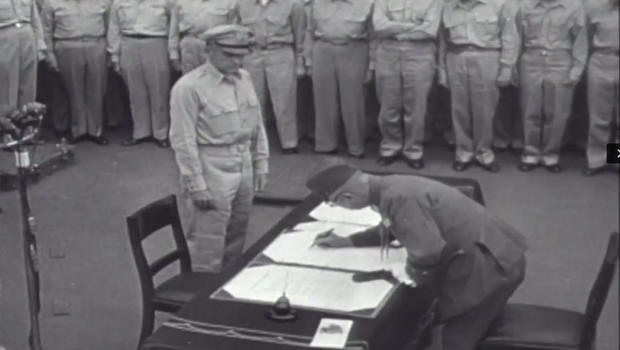At 100, World War II nurses have friendship of a lifetime
NEW YORK -- They were young Army nurses in World War II, sharing a room and experiences that forged an extraordinary bond.
A monsoon destroyed part of their hospital on a South Pacific island. They were swamped with the sick and wounded near the front lines. A disease outbreak killed colleagues. Yet Amelia "Mimi" Greeley and Ruth "Brownie" Girk survived, and so did a friendship that still spurs near nightly phone calls as both turn 100.
"We've always appreciated our friendship, but as it gets later and later, we appreciate it more," says Girk, who turns 100 in June. Greeley celebrated her birthday this week.
"We're sort of like sisters - that get along," says Greeley.
Then Amelia Devivo and Ruth Brown, the two women met after volunteering to serve in a war hospital being organized by what is now NewYork-Presbyterian/Weill Cornell Medical Center, where both worked. They thought the same way about medicine and shared a readiness to laugh and enjoy life, traits they'd need after getting to Goodenough Island in early 1944.
A monsoon on the mountainous island, part of what's now Papua New Guinea, poured mud into the newly built Ninth General Hospital and destroyed several wards, according to histories compiled by NewYork-Presbyterian. An outbreak of scrub typhus, a mite-borne disease that causes high fevers, sickened dozens of the hospital's personnel and killed eight.
Within months, the Ninth General moved to Biak Island, off Indonesia's Papua province and closer to the fighting. A hospital designed for 1,500 patients sometimes cared for as many as 2,500. By the war's end in September 1945, the hospital had cared for about 23,000 people.
"It was awful" sometimes, says Greeley, who lives in New York. "But if we saw them get well, it was worth it."
Yet there were adventures, too, such as a 15-day leave that stretched far longer as Girk and Greeley waited to hitch flights in Australia. And there was the camaraderie preserved in a fading photo from the hospital's archives, showing Greeley, Girk and a half-dozen colleagues with broad, carefree-looking smiles.
"When you're in the service, you're away from home, you become very close to people," says Girk, of Peoria, Arizona. "They're your alternate family."
After both worked six postwar months at a now-closed Army hospital in New York and finished their service as captains, Girk studied industrial nursing and worked for an insurer before marriage and moves to the Midwest and elsewhere. Greeley returned to work at NewYork-Presbyterian until her marriage in 1966.
But their friendship held fast. They spent holidays and traveled together with their husbands and later without, after both were widowed in the 1980s.
Friendships among older adults can yield more than emotional benefits, researchers believe. Studies have suggested that people who feel more connected to others live longer, though it's difficult to quantify the effect, said psychologist Louise Hawkley of the NORC research center at the University of Chicago.
These days, it's been several years since Girk and Greeley saw each other; medical issues have made travel difficult. But their phone calls keep the friendship immediate.
They trade updates on their days, confer about their health, revisit three-quarters of a century of memories and had-to-be-there jokes. Laughter starts quickly, stops slowly.
If there's a secret to a long life and friendship, Girk thinks it's "happiness and a pleasant outlook on life."
"We couldn't care less about being 100, believe me," she said.
And Greeley's opinion?
"I think, very often, that we were just two lucky gals."
